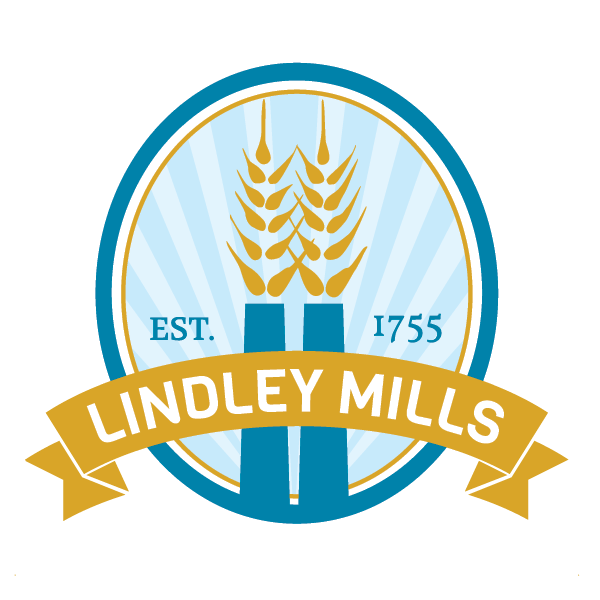The Lindley Legacy: Following In the Footsteps of our Ancestors
 This week, we have been sharing a series of blogs posts to commemorate the 235th anniversary of the Battle of Lindley’s mill, a Revolutionary War battle that happened on the same ground where our mill stands today. Learn more about the significance of the battle and see the entire series of articles on our blog, here. Today we would like to wrap up our week of reflection by sharing our thoughts on the traditions and values we’ve learned from our ancestors.
This week, we have been sharing a series of blogs posts to commemorate the 235th anniversary of the Battle of Lindley’s mill, a Revolutionary War battle that happened on the same ground where our mill stands today. Learn more about the significance of the battle and see the entire series of articles on our blog, here. Today we would like to wrap up our week of reflection by sharing our thoughts on the traditions and values we’ve learned from our ancestors.
Tradition and values are an important part of the way we live our lives and the lens through which we do business. As we think about the products we’re providing to our friends and neighbors, we believe our ancestors would be proud of how we have continued milling with the traditions and values of their time. Our milling standard is high, but it’s simple. And it’s the same principle on which Lindley’s Mill was founded in 1755: We only produce high-quality milled products that we would want to eat, ourselves. The standards of quality are a blend of tradition, technology, and cutting-edge innovation. It’s the core of what we value, but here are other things we value, too.

This week, we have been sharing a series of blogs posts to commemorate the 235th anniversary of the Battle of Lindley’s mill, a Revolutionary War battle that happened on the same ground where our mill stands today. Learn more about the significance of the battle and see the entire series of articles on our blog, here. Today we would like to wrap up our week of reflection by sharing our thoughts on the traditions and values we’ve learned from our ancestors.
Tradition and values are an important part of the way we live our lives and the lens through which we do business. As we think about the products we’re providing to our friends and neighbors, we believe our ancestors would be proud of how we have continued milling with the traditions and values of their time. Our milling standard is high, but it’s simple. And it’s the same principle on which Lindley’s Mill was founded in 1755: We only produce high-quality milled products that we would want to eat, ourselves. The standards of quality are a blend of tradition, technology, and cutting-edge innovation. It’s the core of what we value, but here are other things we value, too.
We Value Community
Earlier this week, we shared the story of the Battle of Lindley’s Mill. We talked about the political climate in NC at the time of the American Revolution and shared how our ancestors banded together to support the injured and fallen in the aftermath of the Battle of Lindley’s Mill despite having differing views on war and political allegiances. Our ancestors’ commitment to fellowship and community is a guidepost for how we live and do business.
We believe sustainable, local food circles are the safest and most stable food sources and we support them as often as possible. We strive to maintain close connections with the farmers who grow our wheat and the bakers who feed our neighbors. Strong local connections to agriculture and long term relationships are good for both our business and our local food systems. Inspired by our ancestors and the diverse network of growers, producers and food advocates in our region, we’re committed to keep contributing and innovating as key players in the local grain and flour community.
We Value Quality
Simply put, our passion is to provide our customers with the best organic flour possible. We care about organics for many reasons--We want our community to eat well for nutrition, but we also care about sustainable farming and preserving our land for future generations .
Part of our passion for quality comes from creating breakthrough products that can improve the nutrition and flavor of baked goods. We’re proud to provide our customers with innovative products like Super Sprout™ Sprouted Whole Grain Wheat Flour that has revolutionized and improved the way we can consume whole grains.
We Value Authenticity
Present-day Lindley Mills stands on the same ground where Thomas Lindley built in 1755. On a warm summer afternoon when the sun’s rays shine into the older part of the mill, you can still see the axe marks on some of the oldest beams, a lasting symbol and reminder of those who came before us.
These days, we work with restaurants and organic food purveyors who are not only feeding our local community, but also the larger communities around us. We are able to fill a specific niche by being efficient and specialized enough to produce product that is distributed nationally, yet we still take the same special care that Thomas Lindley did when he ground his neighbors’ wheat while they waited in the mill yard.
In many ways things haven’t changed much since our ancestors built Lindley’s Mill back in the 1700s. We still maintain close relationships with our local and organic farmers, and we still want to nourish our neighbors with the same high quality flour our ancestors enjoyed so long ago. And we still believe in the everyday courage of working hard toward ideals that will make our community better and stronger